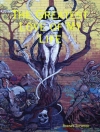Breastfeeding and child feeding at the center of nurturing practices, yet the work of nurture has escaped the scrutiny of medical and social scientists. Anthropology offers a powerful biocultural approach that examines how custom and culture interact to support nurturing practices. Our framework shows how the unique constitutions of mothers and infants regulate each other. The Dance of Nurture integrates ethnography, biology and the political economy of infant feeding into a holistic framework guided by the metaphor of dance. It includes a critique of efforts to improve infant feeding practices globally by UN agencies and advocacy groups concerned with solving global nutrition and health problems.
表中的内容
Acknowledgments
Introduction
PART I: CHALLENGES
Chapter 1. Recovering Nurture
Chapter 2. Studying Nurture
PART II: CONTEXTS
Chapter 3. Tracing the Human Story
Chapter 4. Entering the Commensal Circle
PART III: DIVERSITIES
Chapter 5. Customizing Nurture in Southeast Asia
Chapter 6. Modernizing Nurture: A Global Shift
PART IV: INTERVENTIONS
Chapter 7. Mastering Nurture: Lessons Unlearned
Chapter 8. Negotiating Nurture: Yesterday’s Lesson, Tomorrow’s Hope
References
Index
关于作者
Richard A. O’Connor is a graduate of William & Mary and received his Ph D from Cornell. He spent nearly three decades studying Southeast Asia until his daughter’s anorexia abruptly changed his career. Since her recovery in 1999, he has devoted his work in scholarship to studying eating disorders and breastfeeding as a medical anthropologist.












